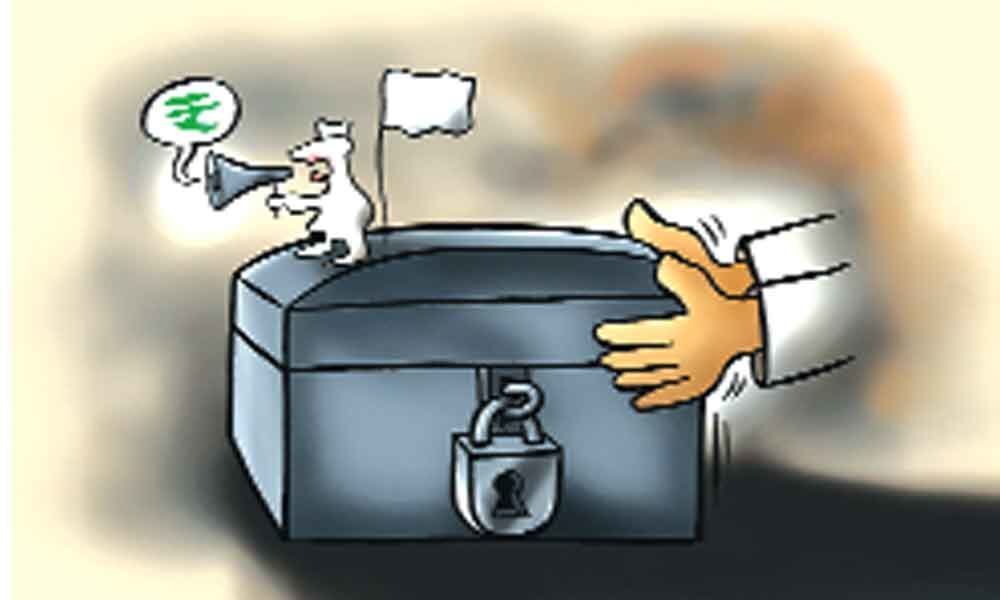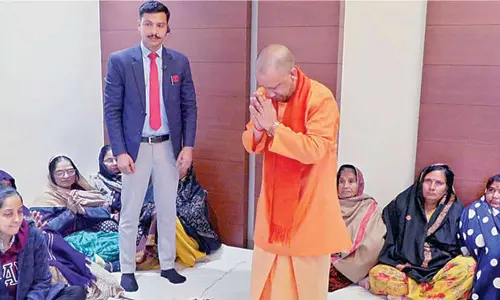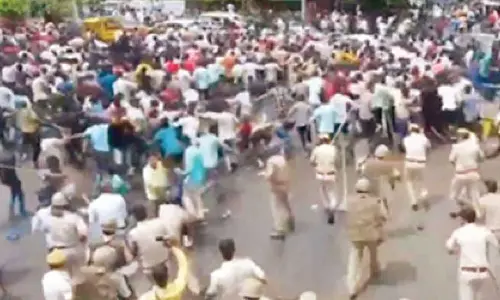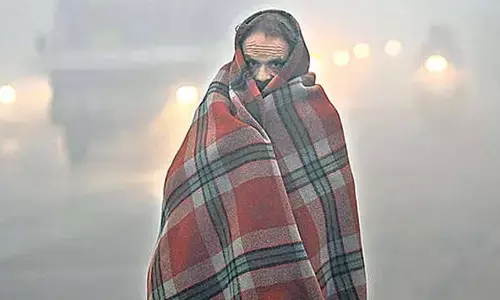Electoral and political funding : How India fares on a global comparison

In order to call a system truly democratic, it is necessary that it must react to the political and socioeconomic aspirations of its people.
In order to call a system truly democratic, it is necessary that it must react to the political and socioeconomic aspirations of its people.
Free and fair elections are the foundation of any democracy and this can be achieved when there is an absence of influence by money in corrupting the electoral process.
It is unfortunate that those who are interested in the welfare of society and who are in capable of indulging in any such corrupt practices are sidelined and are treated as ineligible for participating in the electoral process.
Unregulated or under-regulated election financing leads to two types of capture.
The first involves cases where private entities use money to ensure less stringent regulation and favourable policies.
The second involves cases of "deeper capture", where through their self-serving influence; entities capture not just regulators, but also the views of ordinary citizens and what they think of as "public interest."
The objective of limiting expenditure is to eliminate the influence of big money in electoral process.
Relevant laws and current status of political and electoral funding. It is evident from 2001 Consultation Paper of the National Commission to review the working of the Constitution (NCRWC) on Electoral Reforms that actual campaign expenditure by candidates is "in the range of about twenty to thirty times to the said limits."
The advertisements highlighting the achievements made by the government are incurred from the public exchequer and are created with a view to influence the electorate in favour of the ruling party.
There shall be a restriction on government sponsored advertisements six months prior to the date of expiry of the House/Assembly. The period of filing election petition is 45 days and the time period of filing accounts is 30 days.
This gives small period for a person to analyse expenditure statement of candidates and decide whether an election petition needs to be led.
Hence, the time period for filing of accounts needs to be reduced so that more time is available to analyse the accounts.
Further, there is no provision for filing an election petition against a candidate who has lost the election but is guilty of corrupt practice under section 123 of the Representation of People's Act (RPA) Act.
There is no limit on expenditure during an election from local authorities, graduates and teachers constituencies.
The Conduct of Elections Rules, 1961 should be amended to place a ceiling on election expenditure by a candidate when contesting in such constituencies.
Section 77 of the Representation of People's Act (RPA) does not directly limit the election expenditure of political parties and hence this has given rise to the question of third party expenditure, namely the financing of a candidate's campaign by political parties, corporate donors or well wishers.
Section 77 of the Representation of People's Act (RPA) imposes ceiling on election expenses of a candidate from the date of nomination to the date of declaration of results & thus doesn't cover any period before nomination, even though it constitutes a major part of candidates' expenses.
This should be amended to extend from the date of notification of the elections to the date of declaration of results, given that many candidates file their nominations only on the last date of filing, to prevent the application of section 77 limiting their expenses.
Campaigning commences before or at least once the ECI announces the date of elections, and the filing of nominations is often viewed only as a formality.
Although the UK system of covering both the pre-candidacy long-campaign period, namely a certain specified time, such as a year, before the date of nomination; and the short-campaign period, namely from the date of nomination to the declaration of results is desirable.
An amendment to section 77 extending its scope as suggested above may be a better solution. Further, Section 77 of the Representation of People's Act (RPA) only regulates the election expenses of candidates.
However political parties are free to spend any amount as long as it is for the general party propaganda, and not towards an independent candidate. Thus, there is no ceiling on party expenditure.
The authorisation of corporate contribution through a resolution passed at the meeting of the Board of Directors under Section 182(1) of the Companies Act, 2013 should be amended to empower a larger group of people, such as the company's shareholders, in deciding how to use the funds of a company for political purposes.
An analysis by Association for Democratic Reforms (ADR) on the sources of funding for parties reveals that more than 75 per cent of funds are unknown while only 9 per cent of their funding is said to comprise donations over disclosure limit (the non-deductibility of income tax does not serve as a sufficient deterrent).
Donor incentives created by tax exemptions do not always outweigh the disincentive caused by the loss of anonymity.
Hence, it is imperative to require the disclosure of all contribution amounts. Further, the limit should apply to contributions given by a donor throughout the year.
Hundi or bucket collections at public rallies are also said to form part of parties' funding corpus and are also not disclosed on grounds of practical difficulty.
However, such levels of anonymity are used as means of avoiding disclosure.
Electoral funding: a comparative analysis
In UK, there are limits on party and candidate expenditure, and these limits differ depending on the type of election (parliamentary or local body).
There are no caps on individual or corporate contributions to parties or candidates, although foreign donors are banned.
In fact, there is no specific provision prohibiting corporations with partial government ownership or government contracts from donating as well.
With respect to corporate contributions, it is important to note that they require prior shareholder approval.
Campaign finance laws in the US are different at the various levels. At Federal Level, the Federal Election Commission enforces these laws. There are no limits on election expenses by candidates or political parties.
The Supreme Court struck down the Federal Election Campaign Act's individual expenditure limit on the grounds that it curtailed the quantum of free speech, and hence violated the First Amendment Rights of the candidates.
It must be noted that Presidential candidates are publicly funded and an upper limit to that expenditure is constitutional.
In Japan, election expenses of candidates are based on the type of elections and the number of voters in the constituency. However, there is no article limiting the expenditure by political parties.
There is a ceiling on campaign expenses to ensure the elimination of inequalities in the campaign by restricting internet usage; regulating advertising and the size and number of placards and posters; and shortening the campaign period to between 12-17 days depending on the type of elections.
Philippines set the ceiling for political parties at 5 pesos per voter in each constituency where the party is fielding a candidate.
Political parties or candidates cannot accept donations from corporate; foreign interests; anonymous donors and other financial institutions, educational institutions receiving state support and officials/employees of the Civil Service or Armed Forces.
Not only can money buy advertising and canvassing facilities such as hoardings, posters, etc, but it can also provide the means for quick communications, movements and advanced campaign techniques and is also "a substitute for energy" for which paid workers can be employed where volunteers are found to be insufficient.
Shashidhar Vuppala (The author is a Hyderabad-based socio-political activist)















